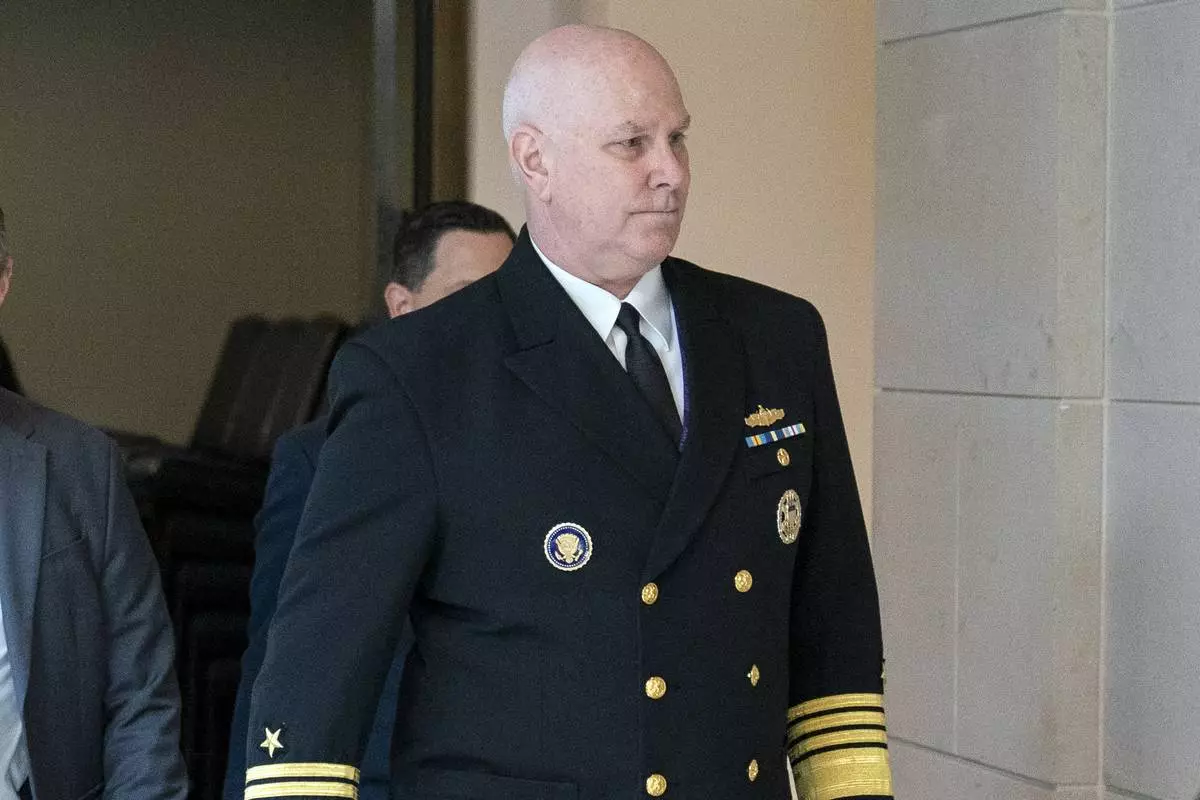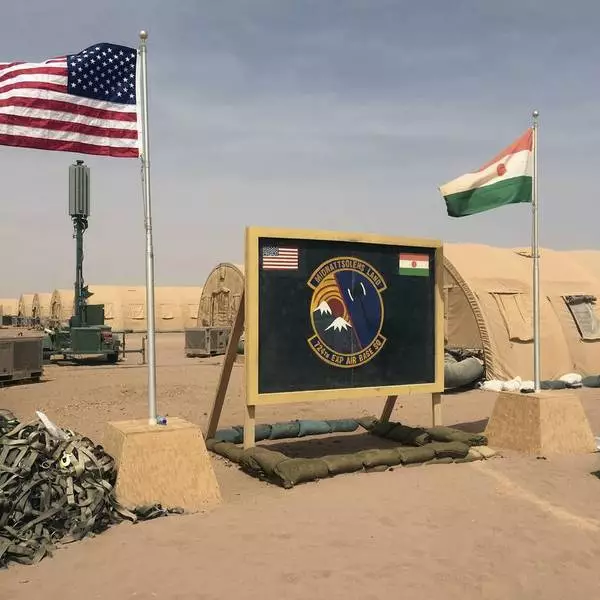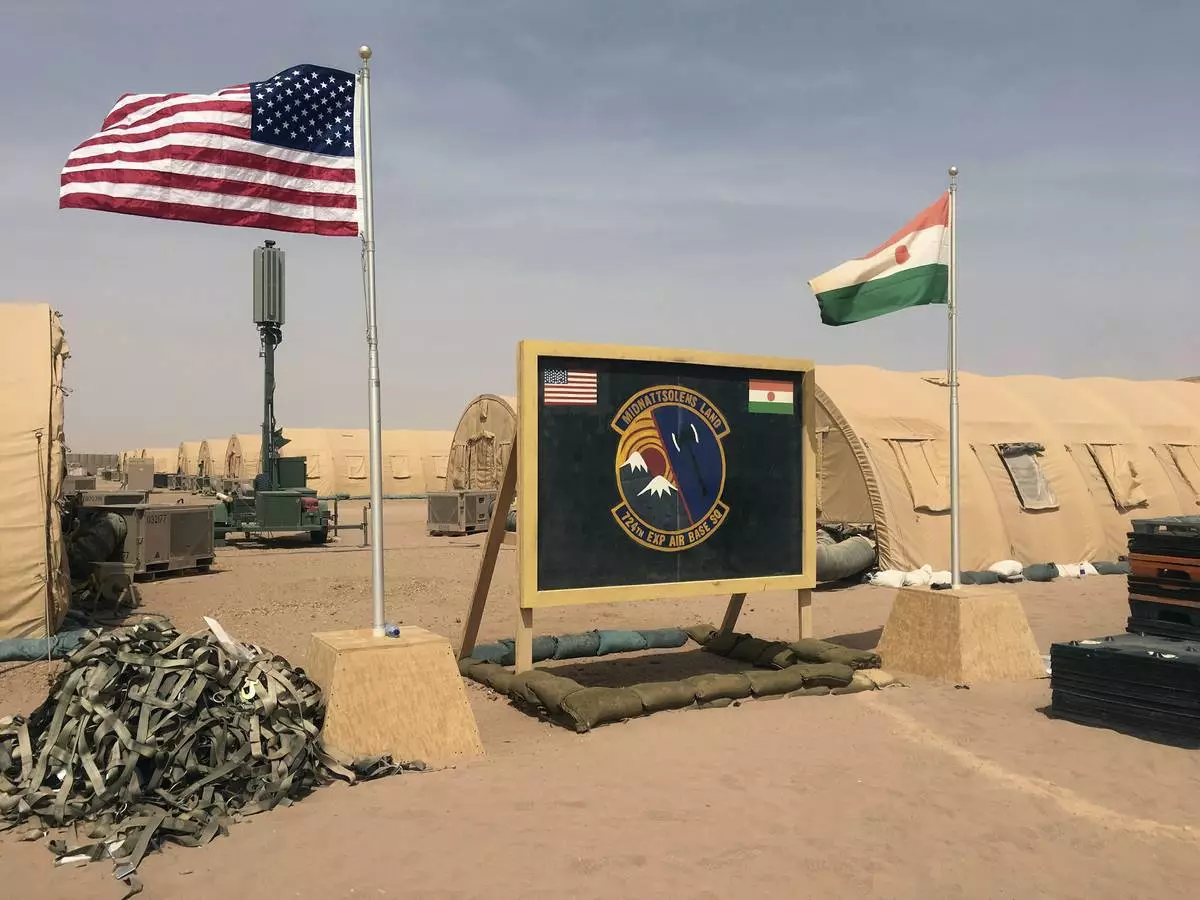President Donald Trump's posthumous slam on Sen. John McCain flips reality on its head when it comes to who gave veterans the option to see a private doctor at public expense.
"McCain didn't get the job done for our great vets," Trump said Wednesday. "I got it done."
Actually, McCain got it done.
Trump routinely takes full credit for enacting the Choice program, ignoring the fact that it was signed into law by President Barack Obama in 2014. This time, his boast came as part of a broad-brush denunciation of McCain, the senator from Arizona, Vietnam war naval aviator and tortured prisoner of war who died in August of brain cancer.
TRUMP: "The vets were on my side because I got the job done. I got Choice and I got accountability. ... For many decades, they couldn't get it done. It was never done. I got it. Five months ago, I got it done. Choice." — remarks at an Army tank factory in Lima, Ohio.
THE FACTS: What Trump got done was an expansion of the program achieved by McCain and Sen. Bernie Sanders, most prominent among the lawmakers who advanced the legislation signed by President Barack Obama.
McCain was a co-sponsor of the 2014 legislation to overhaul the Department of Veterans Affairs following the scandal at VA's medical center in Phoenix, where some veterans died while waiting months for appointments for medical care. He was a key negotiator for the legislation establishing the Veterans Choice program, working with Sanders, the co-author of the bill. Sanders was then chairman of the Senate Veterans Affairs Committee.
McCain didn't rest after the law was enacted. He fought to expand the program and achieved that, too, in his last months.
Trump signed the expansion into law in May. It's named after three veterans who served in Congress.
One of them is McCain.
It's called the John S. McCain III, Daniel K. Akaka, and Samuel R. Johnson VA Maintaining Internal Systems and Strengthening Integrated Outside Networks Act of 2018.
TRUMP: "Instead of waiting in line for two days, two weeks, two months, people waiting on line — they're not very sick, by the time they see a doctor, they are terminally ill — we give them Choice. If you have to wait for any extended period of time, you go outside, you go to a local doctor, we pay the bill, you get yourself better, go home to your family — and we got it passed. We got it done."
THE FACTS: As he does routinely, Trump exaggerated what's been accomplished with his expansion.
Veterans still must wait for weeks before they can get private care outside the VA system.
The program currently allows veterans to see doctors outside VA if they must wait more than 30 days for an appointment or drive more than 40 miles (65 kilometers) to a VA facility. Under new rules to take effect in June, veterans are to have that option for a private doctor if their VA wait is only 20 days (28 for specialty care) or their drive is only 30 minutes.
But the expanded Choice eligibility may do little to provide immediate help. That's because veterans often must wait even longer for an appointment in the private sector. Last year, then-Secretary David Shulkin said VA care is "often 40 percent better in terms of wait times" compared with the private sector. In 2018, 34 percent of all VA appointments were with outside physicians, down from 36 percent in 2017.
The VA also must resolve long-term financing because of congressional budget caps after the White House opposed new money to pay for the program. As a result, lawmakers could be forced later this year to limit the program or slash core VA or other domestic programs.
Also key to the program's success is an overhaul of VA's electronic medical records to allow seamless sharing of medical records with private physicians, a process expected to take up to 10 years. VA Secretary Robert Wilkie has said full implementation of the expanded Choice program is "years" away.
Find AP Fact Checks at http://apne.ws/2kbx8bd
Follow @APFactCheck on Twitter: https://twitter.com/APFactCheck
WASHINGTON (AP) — The United States will pull the majority of its troops from Chad and Niger as it works to restore key agreements governing what role there might be there for the American military and its counterterrorism operations, the Pentagon said Thursday.
Both African countries have been integral to the U.S. military’s efforts to counter violent extremist organizations across the Sahel region, but Niger’s ruling junta ended an agreement last month that allows U.S. troops to operate in the West African country. In recent days, neighboring Chad also has questioned whether an existing agreement covered the U.S. troops operating there.
The U.S. will relocate most of the approximately 100 forces it has deployed in Chad for now, Pentagon press secretary Maj. Gen. Pat Ryder said Thursday at a press briefing.
“As talks continue with Chadian officials, U.S. AFRICOM is currently planning to reposition some U.S. military forces from Chad, some portions of which were already scheduled to depart. This is a temporary step as part of the ongoing review of our security cooperation, which will resume after Chad’s May 6th presidential election," Ryder said.
In Niger, the majority of the 1,000 U.S. personnel assigned there also are expected to depart, Ryder said.
U.S. and Nigerien officials were expected to meet Thursday in Niger's capital, Niamey, “to initiate discussions on an orderly and responsible withdrawal of U.S. forces," the State Department said in a statement late Wednesday. Follow-up meetings between senior Pentagon and Niger officials are expected next week “to coordinate the withdrawal process in a transparent manner and with mutual respect,” Ryder said.
Called status-of-forces agreements, these deals allow the U.S. to conduct critical counterterrorism operations within both countries' borders and have supported military partner training. The reversals have prompted concern that U.S. influence in Africa is losing ground to overtures from Russia and China.
Relations have frayed between Niger and Western countries since mutinous soldiers ousted the country’s democratically elected president in July. Niger’s junta has since told French forces to leave and turned instead to Russia for security.
Earlier this month, Russian military trainers arrived to reinforce the country’s air defenses and they brought Russian equipment, which they would train Nigeriens to use.
Niger plays a central role in the U.S. military’s operations in Africa’s Sahel region, a vast region south of the Sahara Desert. Washington is concerned about the spread of jihadi violence where local groups have pledged allegiance to al-Qaida and the Islamic State groups.
Niger is home to a major U.S. air base in the city of Agadez, about 920 kilometers (550 miles) from the capital, which is used for manned and unmanned surveillance flights and other operations. The U.S. also has invested hundreds of millions of dollars in training Niger’s military since beginning operations there in 2013.
Officials from the State Department, U.S. Africa Command and the Pentagon will work with Chad’s government to make the case for U.S. forces to continue operations, Joint Chiefs Vice Chairman Adm. Christopher Grady said Wednesday.
Grady told The Associated Press in an interview that if both countries ultimately decide the U.S. cannot remain, the military will have to look for alternatives to run counterterrorism missions across the Sahel.
“If we are asked to leave, and after negotiations that’s the way it plays out, then we are going to have to recalculate and figure out a new way to do it,” Grady said.
The news of the departure of U.S. forces in Chad was first reported by The New York Times.

FILE - Vice Chairman of the Joint Chiefs, Adm. Christopher Grady, right, arrives for a closed door briefing about the leaked highly classified military documents, on Capitol Hill, April 19, 2023, in Washington. Grady says there's been no final decision on whether or not all U.S. troops will leave Niger and Chad. (AP Photo/Alex Brandon, File)

US to pull troops from Chad and Niger as the African nations question its counterterrorism role

US to pull troops from Chad and Niger as the African nations question its counterterrorism role

FILE - A U.S. and Niger flag are raised side by side at the base camp for air forces and other personnel supporting the construction of Niger Air Base 201 in Agadez, Niger, April 16, 2018. The United States is attempting to create a new military agreement with Niger that would allow it to remain in the country, weeks after the junta said its presence was no longer justified, two Western officials told The Associated Press Friday April 19, 2024. (AP Photo/Carley Petesch, File)













